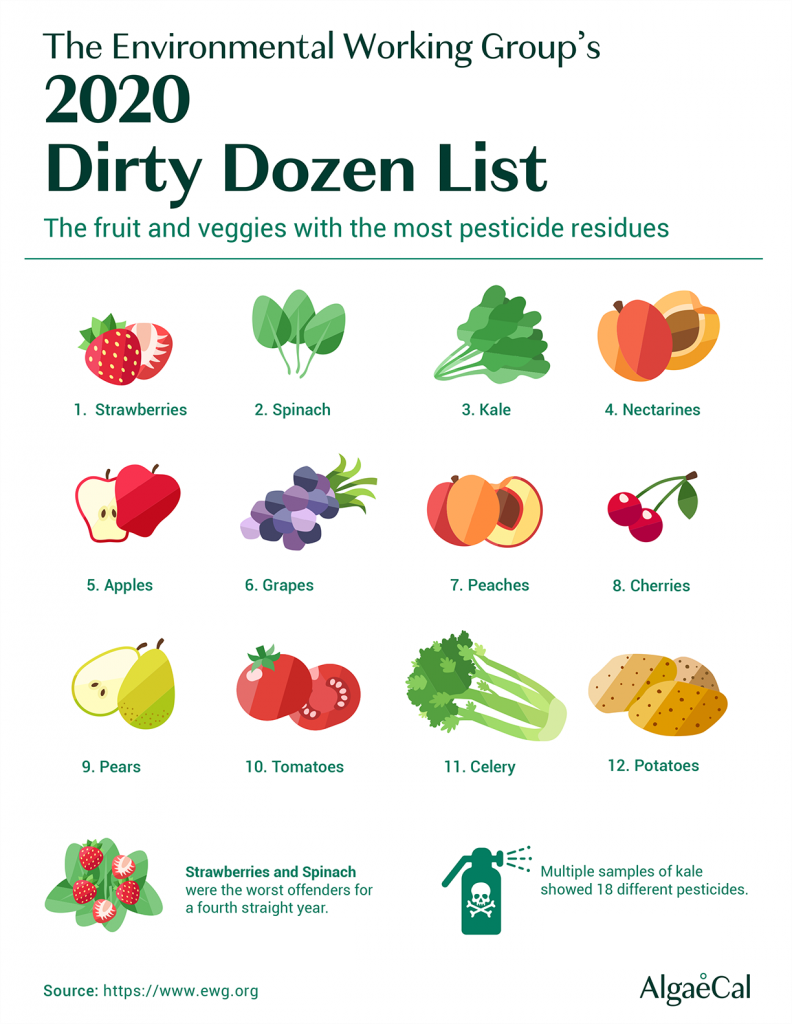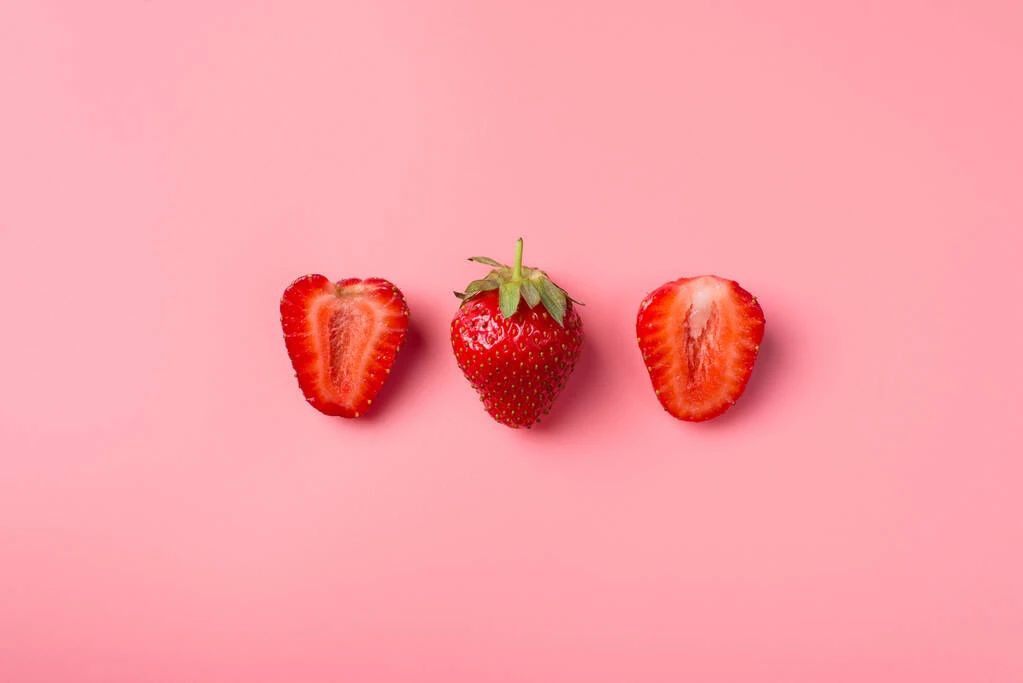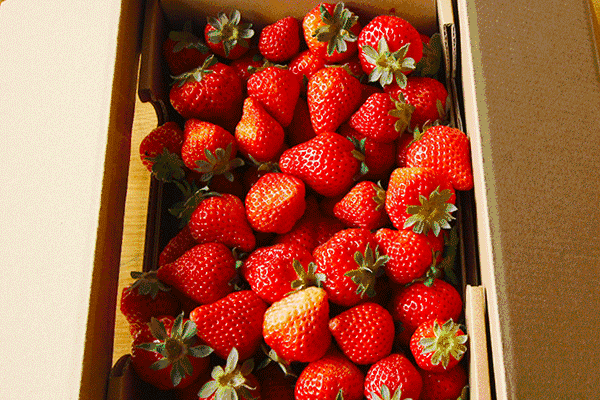
Strawberry is known as “the first fruit in spring”. It has an attractive appearance, sweet and sour taste, and its vitamin C content is 7-10 times higher than that of apples and grapes.

Even with such a good reputation, strawberry cannot escape the fate of “flop”.
The United States Environmental Work Organization (EWG) publishes the “Dirty Fruits and Vegetables List” every year. Strawberries have been ranked first for many years.
Are strawberries really so “dirty”? Why are dietitians full of praise for it?
Is strawberry really the “dirtiest fruit”?
Strawberry with the name of the title of “dirtiest fruit”, many people worry that if strawberry can be eaten anymore?
In fact, the EWG is just a private environmental protection agency. It borrowed the pesticide residue data from the USDA to make its own ranking. In other words, “the dirtiest fruits and vegetables” is not the official statement of the USDA.
This ranking does not talk about whether the residues meet the standards, but only describes the variety of pesticides. Strawberry has the most types of pesticide residues, but this does not mean that the amount of pesticide residues in strawberries is large.

In the first half of 2020, the national food safety supervision random inspection pass rate was 97.89%. A study on pesticide residues in strawberry shows that the pass rate is as high as 98.21%.
Fruits and vegetables for daily consumption will inevitably have some low-toxic, slightly toxic pesticide residues, but the harm of pesticide residues is related to the intake.
The Ministry of Agriculture and Rural Affairs, the National Health Commission and other departments have set minimum pesticide residue standards for fruits and vegetables on the market. As long as they are within the the standards, they will generally not cause harm to the human body.
Strawberries bring 6 benefits to the human
Strawberry is a low glycemic index food, and patients with diabetes can consume it in moderation.
Strawberries contain a variety of minerals. Each 100 grams contains 131 mg potassium, 4.2 mg sodium, 18 mg calcium, 27 mg phosphorus, 12 mg magnesium, 1.8 mg iron, and trace elements such as zinc and copper.
Strawberry is high in potassium and low in sodium, suitable for patients with hypertension and edema nephropathy.

In addition, eating strawberries regularly has 6 benefits for the body:
01. Supplementing Vitamin C
Strawberry contains a variety of vitamins, of which vitamin C is rich, 47 mg/100 g. Eating 10 strawberries a day can meet the daily vitamin C intake needs of adults. Vitamin C helps prevent scurvy, bleeding gums and osteoporosis.
02. Protecting the intestines
A study by the University of Massachusetts in the United States found that eating 250 grams of strawberries a day can reduce the symptoms of diarrhea and inflammation of the colon tissue. It can also alleviate the growth of harmful bacteria caused by inflammatory bowel disease, reduce the problem of healthy bacteria, and restore the balance of intestinal flora.
03. Lowering cholesterol levels
US Science and Technology Daily reported that Italian scientists have found that eating strawberries helps reduce cholesterol levels.
The anthocyanins rich in strawberry berries can accelerate the decomposition of cholesterol in the body and reduce low-density lipoprotein, thereby preventing thrombosis and reducing the occurrence of cardiovascular and cerebrovascular diseases.
04. Protecting your heart
Harvard University School of Public Health research found that regular consumption of strawberries helps reduce blood lipids and the risk of vascular inflammation.
Strawberries also contain folic acid, which is good for heart health. Multiple studies have found that people with low levels of folic acid in their bodies have an increased risk of fatal coronary heart disease.
05. Preventing Alzheimer’s Disease
The anthocyanins in berries such as strawberries, blackberries, and blueberries protect the brain from oxidative stress, which is the main cause of neurodegenerative diseases such as Alzheimer’s disease.
In addition, the compounds in the berries can decompose advanced glycation end products, and this substance is also related to senile diseases such as Alzheimer’s.
06. Prevent constipation
Strawberry has many small seeds on the surface. Most of these fruit seeds are fiber and cannot be digested and absorbed by the intestinal tract. They stimulate intestinal peristalsis and promote faster excretion of intestinal contents.
People who often suffer from constipation due to insufficient dietary fiber are suitable for eating strawberries.
People who have weak gastrointestinal tract, eat food prone to diarrhea, and even drink cold water and want to go to the bathroom, are not suitable for eating more strawberries, otherwise they will cause diarrhea.
1.Strawberry choosing, cleaning and preserving

How to choose strawberries?
Choose the strawberries with color in bright red, bright green pedicle leaves, seeds evenly distributed and no damage.
If there are too many white parts or green, it means that it is not mature and should not be purchased.
It’s not that the bigger the strawberry is, the better it tastes. The bigger the strawberry is with relatively lighter flavour. Therefore, strawberries that are slightly larger than quail eggs and have a rosy color have a better taste.
How to wash strawberries
The delicate strawberry will easily rot when it touches water, and it is not easy to keep. Strawberries are best washed before eating.
1. Washing in the flowing water
2. Soak in light salt water for 5 minutes to make the strawberries cleaner after washing.
3. Remove the stalk of the strawberry. Be careful not to remove the strawberry pedicles before washing, because if the pedicled strawberries are soaked in water, harmful substances will enter the inside of the fruit with the water and cause pollution.

Do not to soak strawberries with detergents such as Detergent. These substances are difficult to clean and easily remain in the fruit, causing secondary pollution.
How to store strawberries?
If the strawberries you bought are not eaten right away, the correct storage method is to spread a layer of paper towel or toilet paper on the plate, put the strawberries on the plate, seal them with plastic wrap or airtight bag, and put them in the refrigerator freezer (the best storage temperature for strawberries) It is 0℃~10℃).
As long as it does not touch water and is well sealed, it can generally be stored for 3 to 4 days. If the strawberry itself is of good quality, it can be stored for about 5 days.
If you want to keep it longer, it is recommended to put it in the freezer compartment of the refrigerator and store it as a frozen strawberry.
Comments